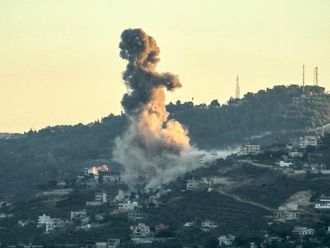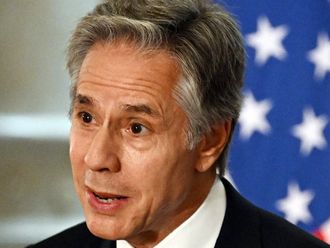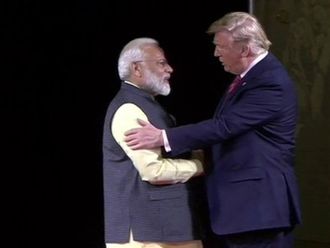Beirut: Israel bugged the mobile phones of members of Lebanon's Hezbollah, allowing it to send false text messages and to track the phones' movements, a senior Hezbollah MP and a government expert said on Tuesday.
"The enemy (Israel) has succeeded in planting secret lines ... in the mobile phones of some members of the resistance," Hezbollah MP Hassan Fadlallah said in reference to his Shiite party at a press conference with Telecommunications Minister Charbel Nahhas.
"After a lengthy, complex investigation ... it was revealed that three resistance members were using local mobile phones which had been deliberately sold to them after being implanted with secret Israeli lines" by a Lebanese spying for Israel, he said.
Fadlallah, chairman of parliament's media and telecommunications committee, said the Shiite movement had cracked the case in coordination with military intelligence after police zeroed in on the three Hezbollah members as possible Israeli agents.
It turned that the three suspected agents were in fact the victims of the Israeli bugging, Fadlallah said.
A ministry expert at the news conference confirmed that the infiltration meant Israel could send out text messages and other information from the phones.
They could also track the movements of the phones and listen in on any conversations wherever they were, he said.
Fadlallah, who reiterated Hezbollah's belief that Israel had control over Lebanon's telecommunications, spoke following unconfirmed reports that three high-ranking members of the Shiite militant group were implicated in the 2005 murder of ex-premier Rafik Hariri.
His comments also came a day after the release of a report by the Canadian Broadcasting Corp that cited extensive telecom evidence linking Hezbollah to the murder.
But Fadlallah denied that the revelation came in reaction to any of the reports, saying the press conference had been scheduled weeks ago.
Tensions are brewing in Lebanon as the UN-backed Special Tribunal for Lebanon (STL) is reportedly set in the coming months to issue an indictment over the 2005 killing of Hariri and 22 others in a Beirut bombing.
Hezbollah has said it expects some of its members to be indicted and warned it would not stand by idly should it be accused, sparking fears of renewed violence in the troubled eastern Mediterranean country.
Prime Minister Saad Hariri, son of the slain Rafiq, has vowed to see the investigation through.
More than 100 people in Lebanon have been arrested on suspicion of espionage for Israel since April 2009, including telecoms employees.
Lebanon has filed a complaint to the United Nations over the alleged Israeli spy networks.











